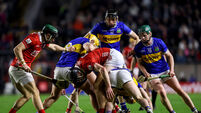Bank ‘part-owned firm that built Nazi crematoria’
The 2,400-page study is the result of seven years of work by a team of historians who scoured a huge number of Dresdner Bank’s files to detail its involvement with Adolf Hitler’s regime before and during World War II.
Wulf Meier, a member of the bank’s management board, said the report “calls things by their proper names, and we accept these truths, even if they are painful”.














